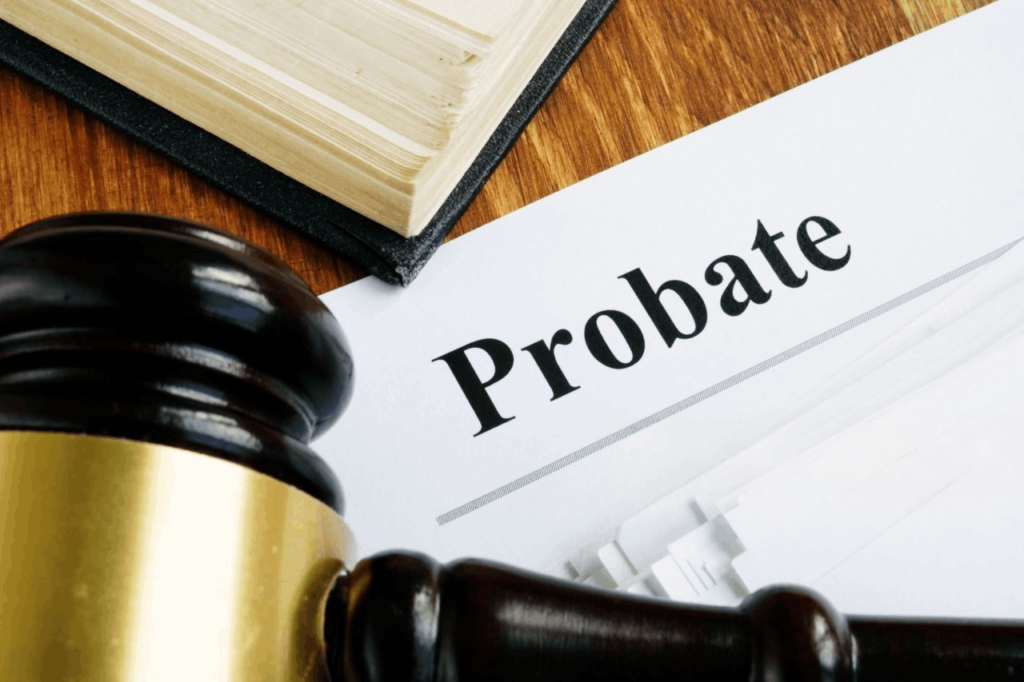
Dealing with the estate of a loved one after their death can be an overwhelming process.
One of the essential steps is often obtaining a grant of probate, a legal document that gives someone the authority to manage and distribute the deceased’s assets.
But what exactly is a Grant of Probate, when is it needed, and how can you apply for one in the UK?
This guide explains everything you need to know about the probate process in the UK, including who needs probate, who reads a will after death, and how to apply.
What Is a Grant of Probate?
The grant of probate is an official document issued by the probate registry that confirms the legal authority of the person named in a will (the executor) to manage the deceased’s estate.
The executor requests a grant of probate if a will is valid.
If no will exists, a close family member or spouse can apply for letters of administration, which serve a similar function.
Grant of Probate Meaning
In simple terms, the grant of probate meaning refers to the court’s recognition that the will is valid and the executor can now:
Access the deceased’s bank accounts
Sell or transfer property
Pay debts and taxes
Distribute assets according to the will
When Is Probate Required?
Many people wonder: Is probate always needed?
The answer depends on the circumstances.
You will typically need probate if:
The deceased only owned properties or land in their name
The estate is worth more than £5,000–£10,000 (varies by bank or institution)
There are shares, investments, or large sums in bank accounts
You may not need probate if:
The estate was jointly owned (as everything passes to the surviving joint owner)
The estate is small and straightforward
There are no significant assets
For more information on determining if probate is necessary, read the detailed guide: Do I need a solicitor for probate
Who Needs Probate?
Probate is typically required by:
The executor(s) named in the will
Close family members or, in the absence of a will, next of kin
Solicitors or professionals hired to manage the estate
Before applying, it’s essential to check whether the deceased had a will.
If there is no will, the rules of intestacy apply, and the process differs.
Who Reads a Will After Death?
After a person passes away, their will is read by the executor or solicitor.
While there’s no formal “reading of the will” like in movies, beneficiaries are entitled to see the will once probate is granted.
If you’re named as an executor, it’s your responsibility to locate the will, ensure it’s valid, and then apply for probate.
How to Apply for a Grant of Probate: Step-by-Step Overview
1. Check If Probate Is Needed
Start by assessing the value of the estate and whether any assets are jointly owned.
If unsure, speak to banks, mortgage providers, or a solicitor.
2. Value the Estate
You’ll need to calculate the total value of:
Property
Bank accounts
Investments
Personal possessions
Outstanding debts
Completing the probate application and inheritance tax forms requires this information.
3. Report to HMRC
If the estate is liable for Inheritance Tax (IHT), complete and submit the appropriate forms (IHT205 or IHT400).
4. Complete the Probate Application
You can apply online or by post.
For a full guide, read: How to apply for probate online in the UK
Details you’ll need:
Original will and any codicils
Death certificate
Inheritance tax confirmation
Executor details
5. Pay the Probate Fee
The probate charge for estates exceeding £5,000 is £273 as of 2025.
There is no fee for estates under this value.
6. Send the Application
Post the original documents to the HMCTS probate office, or submit your application online via GOV.UK.
How Long Does It Take to Get Probate?
In the UK, the probate process normally takes 8 to 12 weeks, although it may take longer if:
The estate is complex
There are disputes among beneficiaries
Inheritance Tax needs to be paid
The executor can start allocating assets and paying off debts as soon as the grant of probate is issued.
What Happens After Probate Is Granted?
After receiving the grant, the executor’s role becomes active.
Here’s what happens next:
Settle Debts
You must pay off any debts owed by the deceased using estate funds.
Distribute the Estate
Assets are then divided according to the will or intestacy laws.
Keep Records
Maintain a detailed record of all transactions to avoid any legal issues with beneficiaries.
Common Questions About Probate
What if There Is No Will?
If no will is found, an administrator must apply for letters of administration.
The process is similar but follows the rules of intestacy.
Can Probate Be Challenged?
Yes, family members or others can challenge a will based on undue influence, mental capacity, or errors in the will’s execution.
Can I Apply for Probate Without a Solicitor?
Yes, though complex estates may benefit from legal advice. You can explore this topic more in our blog:
Our Expert Help Is Just a Click Away
If you’re feeling overwhelmed or unsure how to begin, our experienced team at Probate Central is here to help.
We simplify the probate process and offer expert guidance from start to finish.
Whether you’re an executor handling a complex estate or just have questions about the next steps, we’re ready to support you.
Call Us today to speak with a probate advisor.
Summary
Obtaining a grant of probate is a key step in managing a loved one’s estate.
While the process can seem complicated, understanding the requirements, timelines, and responsibilities will help you handle it with confidence.
Whether you need help applying online, valuing an estate, or understanding your duties as an executor, Probate Central is your trusted partner through the UK probate process.
